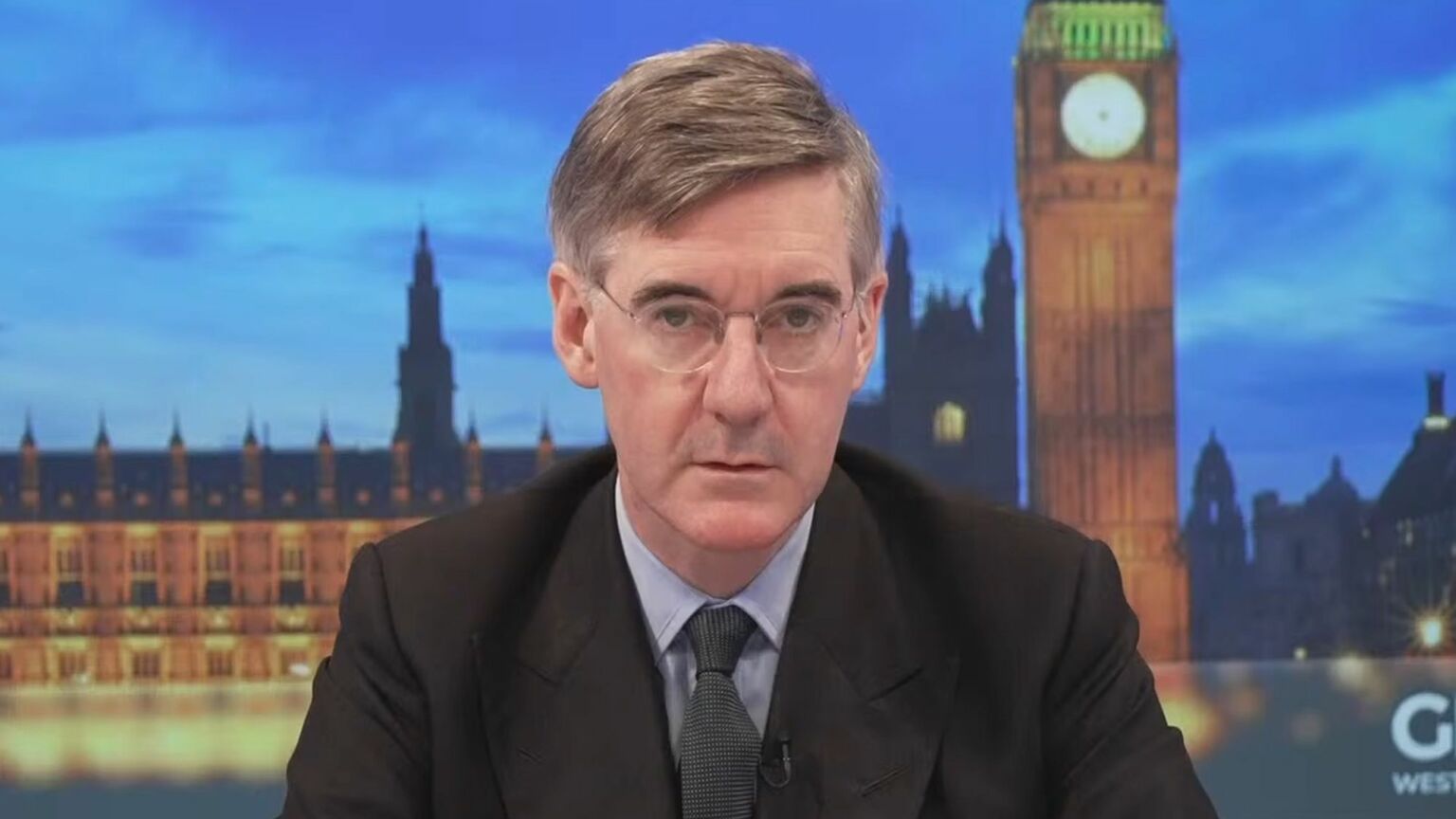Ofcom’s patrician war on GB News
The broadcast regulator thinks viewers are too dim to discern opinions from facts.

Want to read spiked ad-free? Become a spiked supporter.
GB News may not be everyone’s cup of tea, but it is relatively popular, sometimes beating BBC News, Sky News and other rolling-news channels in the ratings. Lots of people seem to enjoy Jacob Rees-Mogg’s State of the Nation and Esther McVey and Philip Davies’s Friday Morning with Esther and Philip – two current-affairs shows fronted by jobbing Tory MPs. And those who don’t surely know where the remote is.
We learnt on Monday that Ofcom, the UK’s broadcast regulator, has sided with GB News’s detractors. It has rapped the right-wing news channel hard over the knuckles. Both politician-fronted programmes, it says, repeatedly broke the Broadcasting Code between May and June 2023 – specifically Rule 5.1, which requires news to be presented with due impartiality, and Rule 5.3, which bans politicians from acting as newsreaders or news presenters. Further breaches of the code could result in an official sanction, which could range from Ofcom ordering GB News not to reuse the content to the revocation of its broadcast licence.
Ofcom’s decision turned on its view of what counts as ‘news’. According to its rules, while news programmes must be strictly impartial, current-affairs discussion need not be.
The ruling is perplexing, not least as the shows in question actually tried very carefully to separate their news and current-affairs output. News bulletins were delivered by a news anchor, always deadpan, at fixed intervals and in a dedicated studio. This was then followed by free-wheeling discussions of the day’s stories, led by the politician presenters.
This didn’t matter, according to Ofcom. A presenter repeating the facts of the news or mentioning a breaking story was apparently enough to make him or her a ‘newsreader’. What’s more, whether these politicians actually expressed biased views on air or not was deemed immaterial. As politicians, they would have been perceived as biased, and that’s what counts, says Ofcom.
This ruling will have profound repercussions for broadcasting, well beyond GB News. Ofcom won’t admit it, but any shows about current affairs that tend to be heavy on opinion will in practice now count as ‘news’ and hence be liable to vetting for their perceived partiality.
Worse still, as Ofcom has itself outlined, programmes will not only need to be vetted for actual bias. What also matters is audience perception. In Ofcom’s own jargon, politicians ‘have an inherently partial role in society and news content presented by them is likely to be viewed by audiences in light of that perceived bias’. In plain English, what this means is that it doesn’t actually matter how fairly a politician handles discussions of current events on air. What matters is whether someone, somewhere, might think this MP has an axe to grind.
At a stroke of an Ofcom apparatchik’s pen, a popular programming format has now been deemed beyond the pale. Even if lots of people like a show and there is no evidence of actual bias at all – and even if there is a clear division between news bulletins and political debate – the state could prevent us from watching it. GB News’s response, that the Ofcom ruling is ‘chilling’ is an understatement. This ruling threatens to put broadcasting culture back into permafrost.
Those running Ofcom have demonstrated their contempt for GB News’s viewers. You might have thought an ordinary viewer in Barnsley or Barnet is perfectly capable of telling the difference between a factual news bulletin and a current-affairs debate, particularly if they are explicitly told by a presenter ‘and now here is the news’ at regular intervals. But apparently not. According to Ofcom, viewers must be treated as if they were gullible idiots who need the state’s protection from hearing political opinions.
Ofcom’s sanctimonious suggestion that its ruling is necessary to uphold ‘fair and equal democratic discourse on influential media platforms’ is hogwash. It is doing no such thing. Look below the surface, this is simply a case of a self-satisfied ‘progressive’ elite doing its damnedest to keep as tight a grip as possible over what you and I are allowed to watch. If Ofcom wanted to promote a vibrant democratic discourse in the media, it would allow for as many different broadcast formats as possible, ranging from the staid BBC practice of journalists posing as impartial to the GB News model of journalists, celebrities and politicians presenting current-affairs discussions in their own style. But Ofcom has decided to strangle this newer, popular format at birth.
The GB News ruling reveals that Ofcom is a deeply reactionary outfit. It wants us to return to the days when the content we watched was controlled entirely by the great and the good. Free speech and open broadcasting are under serious threat.
Andrew Tettenborn is a professor of commercial law and a former Cambridge admissions officer.

Matt Ridley and Brendan O’Neill – live and in conversation
Thursday 21 March – 7pm to 8pm GMT
This is a free event, exclusively for spiked supporters.
Picture by: YouTube.
Who funds spiked? You do
We are funded by you. And in this era of cancel culture and advertiser boycotts, we rely on your donations more than ever. Seventy per cent of our revenue comes from our readers’ donations – the vast majority giving just £5 per month. If you make a regular donation – of £5 a month or £50 a year – you can become a and enjoy:
–Ad-free reading
–Exclusive events
–Access to our comments section
It’s the best way to keep spiked going – and growing. Thank you!







Comments
Want to join the conversation?
Only spiked supporters and patrons, who donate regularly to us, can comment on our articles.